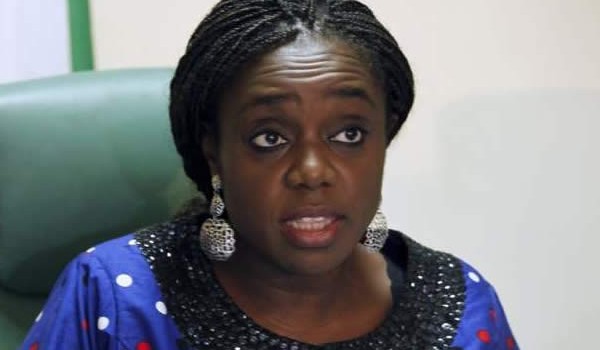The Senate has warned against what it described as “reckless borrowing” by the Federal Government, saying that it must be done reasonably in order not to mortgage the future of unborn generation.
The Upper House had Wednesday quizzed officials of the Ministry of Finance over the federal government’s plan to borrow $5.5 billion from external sources.
In a meeting with officials of the Ministry of Finance, Senator Shehu Sani, Chairman, Senate Committee on Local and Foreign Loans Debts, said ”It has become clear that if Nigeria must borrow, we must borrow responsibly. We cannot afford to mortgage the future of the unborn generation.”
Sani, APC Senator representing Kaduna Central explained that the meeting became imperative because of the Senate’s desire to know what had become of the recovered funds, and why revenues from local sources could not be used in place of the loan.
According to him, “It is important to make the point, however, that the 8th Senate is not oblivious of the concerns of many Nigerians, with respect to what some have described as yet, another round of borrowings by the Federal Government.
It can be safely assumed that millions of our citizens are following this entire exercise with keen interest and will require convincing evidence as justification for these loans at this time.”
The Senator noted “Some of the questions Nigerians and, indeed, many constituents have asked repeatedly include ‘what has the Federal Government done with the reported recovered loot allegedly traced to the previous administrations? What role can such recovered monies play in the 2017 budget financing? How much, indeed, has been recovered? Has the National Assembly appropriated the recovered loots for government expenditure?
Therefore, be certain that all actions and decisions with respect to these loan requests by this committee and, indeed, this Senate will responsibly be done only on its merits. I will advise, therefore, that as representatives of Mr. President, you put your best foot forward and be as convincing as possible with facts and figures for this Senate to fully have your back, with respect to these requests.”
Mrs Kemi Adeosun, the Minister of Finance, explained that while the loan for $3 billion was to service local debts put at N19 trillion, the remaining- $2.5 million budgeted for in the 2017 budget, would be used to finance capital projects.
Adeosun, represented by Mrs. Patience Oniha, the Director-General, Debt Management Office, DMO, defended the request for the fresh $5.5 billion loan, disclosing that 77 percent of Nigeria’s total debt stock, which stood at N19 trillion, were domestic debts.
She said: “If the government is so visible in the local market, it means the government is taking some of the money which ought to go to the private sector. It is called crowding out. If government is not visible in domestic market, there will be enough for the banks to loan to the private sector, which would improve the economy.”
The minister said the tenure of the loans could be between five and 30 years, adding that N3.7 trillion of the domestic debts, was from treasury bills with maturity dates ranging from three months to one year.
Adeosun said: “Let me reiterate the fact here that we are looking at two borrowings for certain purposes. The $2.5bn is the new borrowing, which is taken from the Appropriation Act for 2017; that is the one to add to our debt stock and that is the one to be used to finance the various projects that have been included in the budget.
In terms of tenure, from the figures that distinguished senators have reeled out, we have them in various tenures. What you do is at the time you get to the market and you want to price, you will be more certain about the price. It could be anywhere from five to 30 years.”
She pointed out that ”On borrowing when the current generation may not be around at that time (payment completion), the truth is that if we are borrowing long-term, we are using it to finance capital projects which are also long-term and the benefits of those projects are also long-term.
I believe that some of the roads and even institutions, like some universities that we see today, were built before some of us were born. We should look at it this way; that the benefits are also long-term.”
Rotimi Amaechi, Minister of Transport, who also spoke at the interactive session, said the country needed about $36 billion to rehabilitate and complete the modern railway infrastructure in Nigeria.
Amaechi stated that the Kano-Warri and Kano- Kaduna rail tracks would be funded from the loan being requested.
Meanwhile, President Muhammadu Buhari had forwarded the 2018-2020 Medium-Term ‘Expenditure Framework, MTEF, and Fiscal Strategy Paper, FSP, to the Senate for consideration and subsequent approval.
Bukola Saraki, Senate President, who read the letter, said ”the Medium-Term ‘Expenditure Framework, MTEF, and Fiscal Strategy Paper were prepared against the backdrop of what he described as a generally adverse global economic uncertainty as well as fiscal challenges and recovery in the domestic economy.
Buhari explained that this was to ensure that planned spending was set at prudent and sustainable levels, consistent with government’s overall developmental objectives and inclusive growth
It would be recalled that the Federal Executive Council, FEC, in August had approved the 2018-2020 medium term expenditure framework, MTEF, and the fiscal strategy paper, FSP.
The MTEF is annual, rolling three year-expenditure planning that sets out the medium-term expenditure priorities and hard budget constraints against which sectoral plans can be developed and refined towards providing the basis for annual budget planning.

